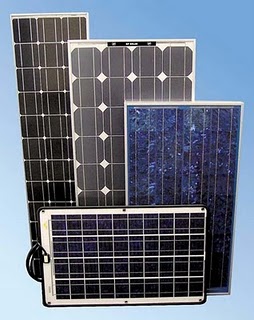SOLAR ELECTRICITY – GENERATING YOUR OWN POWER
There are seven key choices: wind turbines, solar water heating and solar electricity, ground source and air source heat pumps, wood fuelled heating and hydro power.
We’re taking a look at Solar Electricity in more detail.
SOLAR ELECTRICITY systems capture the sun’s energy using photovoltaic (PV) cells. The cells convert the sunlight into electricity, which can be used to run household appliances and lighting. PV cells don’t need direct sunlight to work – you can still generate some electricity on a cloudy day.
PV cells are panels you can attach to your roof or walls. Each cell is made from one or two layers of semiconducting material, usually silicon. When light shines on the cell it creates an electric field across the layers. The stronger the sunshine, the more electricity is produced. PV cells come in a variety of shapes and colours, from grey “solar tiles” that look like roof tiles to panels and transparent cells that you can use on conservatories and glass.
The strength of a PV cell is measured in kilowatt peak (kWp) – the amount of energy the cell generates in full sunlight.
The are a number of benefits of solar electricity;
• Cut your carbon footprint: A typical home PV system could save around 1200 kg of carbon dioxide per year – that’s around 30 tonnes over its lifetime.
• Cut your electricity bills: A typical home PV system can produce around 40% of the electricity a household uses in a year.
• Sell electricity back to the Grid: if your system is producing more electricity than you need, or when you can’t use it, someone else can use it – and you could make a bit of money.
• Store electricity for a cloudy day: if your home isn’t connected to the national grid you can store excess electricity in batteries to use when you need it.
Various grants of up to £2500 are also available to encourage home owners to generate their own power.
If generating your own power is something you’d like to explore further then The Energy Saving Trust website has a simple questionnaire to help you narrow down your options.
And you can hear more about renewables on PASSION for the PLANET
About the Author: Chantal Cooke is a professional journalist, writer and author, co-founder of PASSION for the PLANET and a London Leader in Sustainability.

